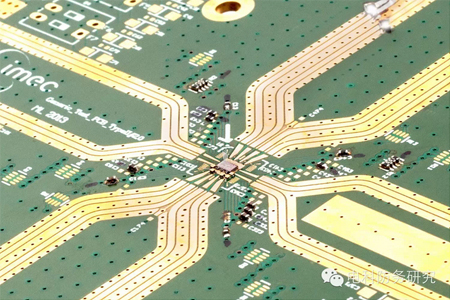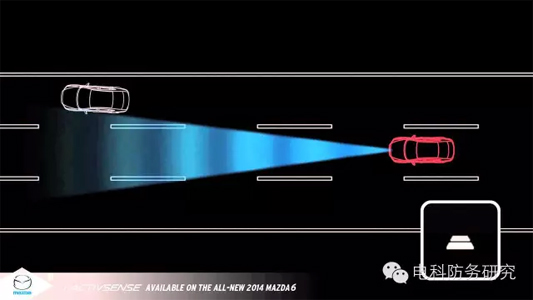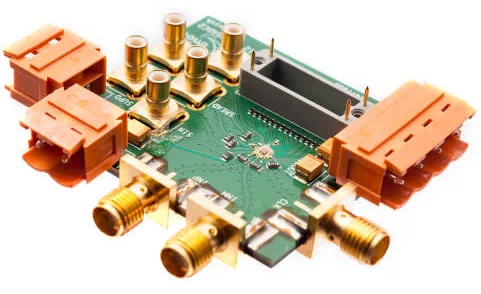IMEC联合日本松下研制出毫米波雷达用CMOS单片收发机

[据美国硅半导体网站2015年2月26日报道]在2015年国际固态电路会议(ISSCC)上,比利时微电子研究中心(IMEC)和松下推出可工作在79GHz、适用于相位调制连续波雷达的互补金属氧化物半导体(CMOS)单片收发机芯片。该成就显示出CMOS用于便宜毫米波雷达系统实现精准表现和动作探测的潜力。

毫米波雷达技术用于高级辅助驾驶系统(ADAS)可以提升尘、雾和黑暗等模糊环境中安全性,因为在这些环境中基于图像的驾驶辅助系统的可靠性会丧失。基于毫米波雷达技术的ADAS可提供更长的距离、更高的精确度,以及比超声传感器更强的隐形安装能力。IMEC研制的79GHz单片收发机基于先进的28nm CMOS技术实现,是替代现有基于锗硅(SiGe)技术的一个引人注意的方案,因为它可实现更低的功耗和更高集成度。而且,基于CMOS的高量产能力,从根本上保证了CMOS技术的低成本性。

IMEC和松下联合开发的收发机芯片中包含一个控制回路,在不影响射频性能的基础上可抑制从发送机到接收机的溢出。该收发机功耗260mW,发射机输出功率11dBm,接收增益为35dB,噪声指数低于7dB,发送到接收的溢出抑制为15dB。由于采用宽调制带宽,深度分辨率可达到7.5cm。

IMEC物联网感知系统项目总监Wim Van Thillo说:"我们很高兴能够在28nm CMOS技术上实现这些卓越的性能,也很高兴看到该技术为毫米波雷达系统所带来的新机会,应用领域不仅是汽车雷达,还包括智能家居、无人机、机器人和其他等。该收发机芯片是我们在追求在单个芯片上实现完整高性能雷达系统过程中取得的一个重要里程碑。"
感兴趣的公司可通过IMEC工业合作项目或IP授权加入此CMOS基79GHz雷达技术的研究。
编译:工业和信息化部电子科学技术情报研究所 张倩
图片及原文链接编辑:《电科防务研究》
Related:
Imec and Panasonic Present breakthrough in CMOS-based Transceivers for mm-Wave Radar Systems
25/2/2015
SAN FRANCISCO (ISSCC 2015, International Solid State Circuits Conference) – Feb. 25, 2015 — Today, at the 2015 International Solid State Circuits Conference (ISSCC), imec and Panasonic presented a transceiver chip for phase-modulated continuous-wave radar at 79GHz. This achievement demonstrates the potential of downscaled CMOS for cheap millimeter-wave (mm-wave) radar systems that can be used for accurate presence and motion detection.
Mm-wave radar technology is used in advanced driver assistance systems (ADAS) to improve safety in blurry conditions such as dust, fog and darkness, where image-based driver assistance systems lack robustness. It also offers longer range, higher precision and invisible mounting capabilities compared to ultrasound sensors. Imec’s 79GHz radar solution is based on advanced (28nm) CMOS technology, and it is an attractive alternative to the current SiGe-based technology as it offers a path to a low-power, compact and integrated solution. Moreover, at the expected high manufacturing volumes, CMOS technology is intrinsically low-cost.
Imec’s and Panasonic’s transceiver chip contains a control loop to suppress the spillover from the transmitter into the receiver without affecting the RF performance. With a power consumption of 260mW, the output power of the transmitter is 11dBm, while the RX gain is 35dB with a noise figure below 7dB and a TX-to-RX spillover suppression of 15dB. Thanks to the wide modulation bandwidth, the achievable depth resolution is 7.5cm.
"We are pleased with these excellent performance results on 28nm CMOS technology, and excited about the new opportunities they present for mm-wave radar systems, not only for automotive radar, but also for other applications such as smart homes, unmanned aerial vehicles (UAVs), robotics and others." stated Wim Van Thillo, program director Perceptive Systems for the Internet of Things at imec. "This transceiver chip is an important milestone we have realized in our
- Imec和UGent首次演示300毫米硅单片生长磷化铟激光阵列(11-08)
- 美国实验室研发出GaN CMOS场效应晶体管(03-02)
- 苏州纳米所在印刷碳纳米管晶体管与CMOS电路研究方面取得新进展(05-22)
- 德国研制出可与CMOS芯片集成的纳米级光探测器(08-08)
- 西班牙光子科学研究所首次制备出高分辨率石墨烯-量子点CMOS成像传感器(06-04)
- 锐迪科新款射频收发器RDA1845已投入量产(08-13)
